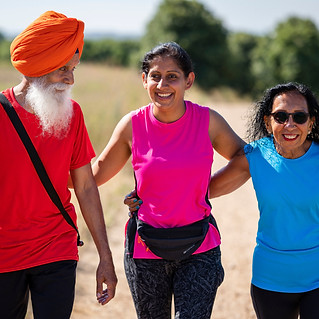
How to check your social needs
How much social interaction do you need?
It’s important to regularly check in and look at the social connections in your life. It’s not about constantly analysing every relationship but about having a general sense of things and checking in with yourself every once in a while. Our founder and CEO, Amy Perrin, explains.
Quality VS quantity
It’s important to remember that the quality of your social connections can be more important than how many you have. Research shows that we only need between three and five close friends for the highest levels of life satisfaction and having too many friendships can actually make it harder to deepen bonds with people. “Quality relationships feel meaningful and where you feel a sense of purpose and value,” says Amy. These relationships don’t all have to be deeply serious: “You might have friendships that lift your spirits and make you laugh, or you might have someone you can phone for a chat and you know they’ll listen”.
Different types of friendships
As well as one-on-one friendships, we get a sense of belonging from being part of something bigger. It might be a group of friends with whom you have a past connection like people you went to school with, or something else in common like a shared interest or being members of the same club or activity. “Think about what social connections give you a sense of belonging” says Amy. “We can get different things from different social connections in our lives.”
Look at your daily interactions
“Feeling connected is not just about our friendships or relationships but other social interactions in our life play an important role,” Amy explains. “It might be with the people we work with, or the familiar faces we see out and about in our local community, or the neighbour we might have a chat with while we’re both putting our bins out. Or it might be visiting the same fruit and veg shop, or chatting to fellow dog owners you see out on your walks.” These interactions might seem mundane and inconsequential but they give us a sense of community. Who is in your ‘community’? What gives you a sense of belonging where you live or work?
Don't compare your social needs to others
“What can be a joyful connection for one person can be different for another,” says Amy. “We all need different levels of social interaction - this can look and feel different for each of us.” Similarly, just because your life may look and feel ‘busy’, don’t assume you’ll feel fulfilled. “Someone who is retired might feel they have everything: a family, a home, friendships but they might miss the sense of value and purpose they got from employment and having work colleagues,” Amy says. “Or someone else might move to a new place for a job but not feel part of the local community. Always look at your social needs as a whole and don’t assume they’re automatically being met.”
.png)



.jpg)